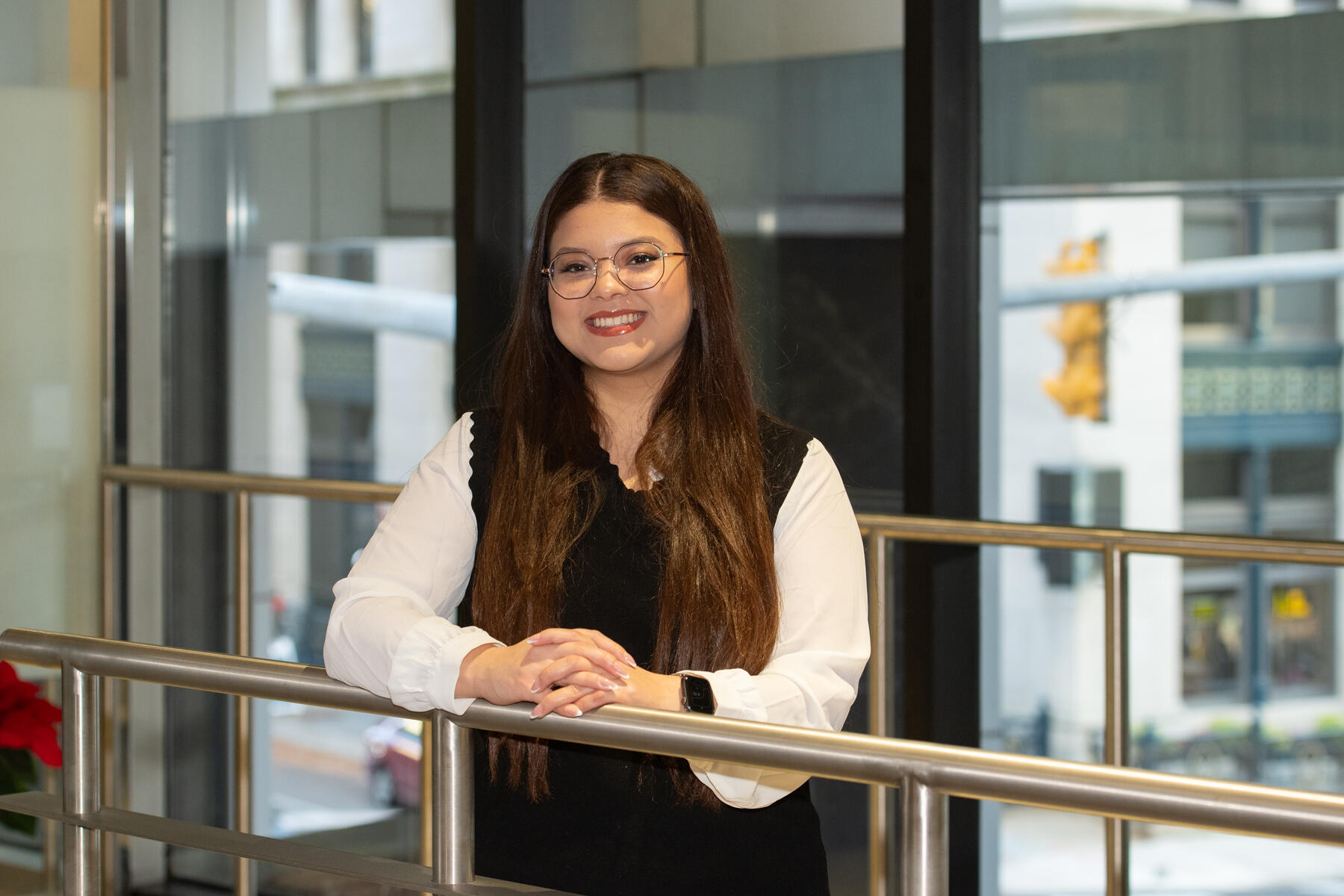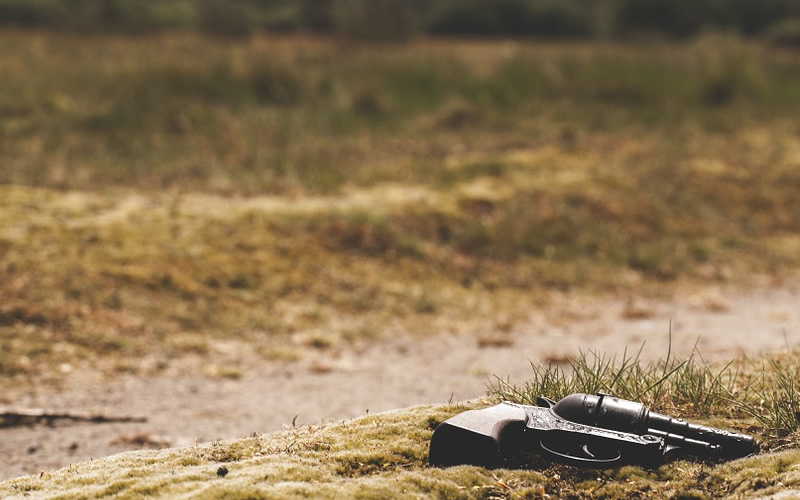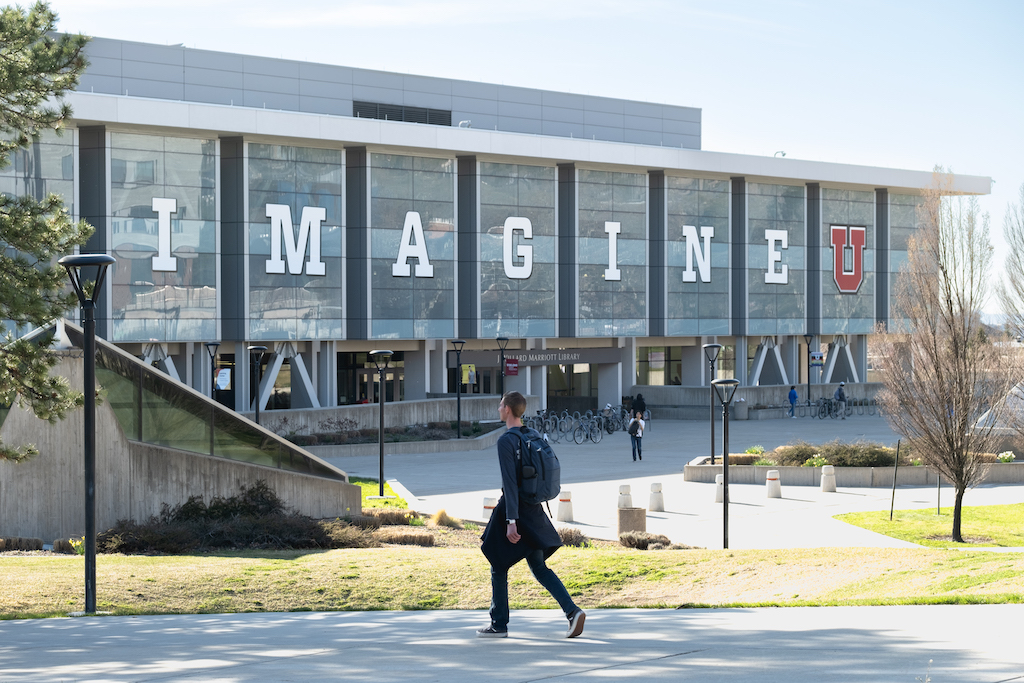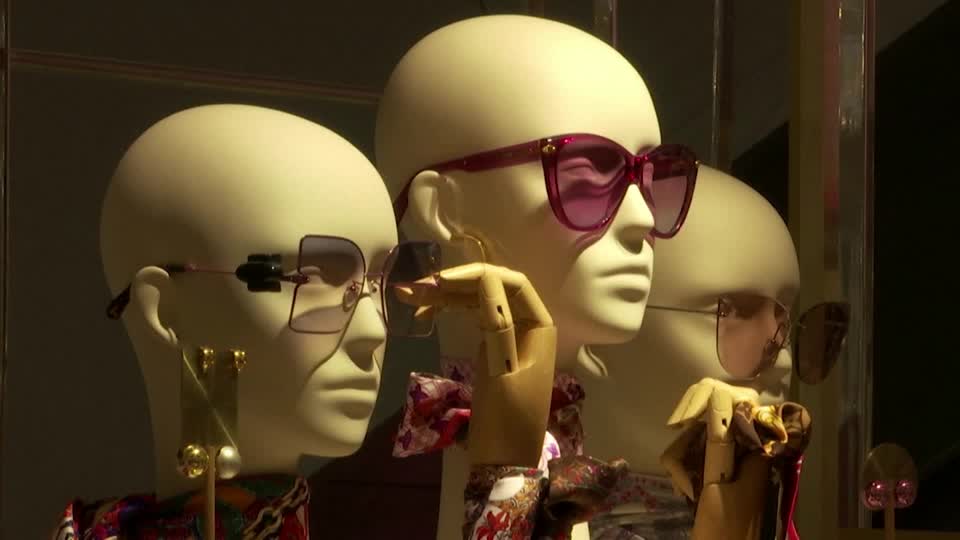
Sections
Dec. 18, 2024
By Haley Tenore
Melanie Cruz may be a self-described introvert, but she is demonstrably outgoing when it comes to promoting health access.
Cruz graduates this month with her second degree from Virginia Commonwealth University – a master’s in public health. Along the way, she has built an impressive résumé, highlighted by her inclusion in the selective Virginia Management Fellows Program and her bilingual initiatives.
Cruz became interested in public health during her undergraduate studies at VCU when she visited the Dominican Republic with the School of Medicine. She has a Spanish-speaking background – her family is from Honduras – and she worked as a medical interpreter. During what she called her “eye-opening” visit, she saw the limited health care available for rural communities.
“These experiences inspired me to pursue a career in public health – to instill change and advocate for those affected in these communities,” Cruz said.
Her advocacy mindset is being framed in part by serving as a Virginia Management Fellow, which allows her to complete three eight-month rotations at state agencies. The program lets students and newly graduated professionals explore careers in government, and Cruz has completed two of her three rotations – at the Department of Health Professionals and soon, the Department of Emergency Management.
“I’m really doing a little bit of everything, really, but most of my work has been around developing job aids and training materials,” Cruz said.
Though she is now well into the fellowship, she remembered how nervous she felt during the application process.
“It was pretty nerve-racking because it was around 300 people that applied,” Cruz said. “It was a very competitive internship, and 30 of us got selected.”
Cruz earned her VCU bachelor’s degree in biology from the College of Humanities and Sciences, with minors in chemistry and sociology, and she decided to pursue her master’s at VCU in the School of Public Health because she enjoys the “community engagement opportunities that the city provides.” That includes her volunteer work for Shalom Farms, a nonprofit that provides fresh produce to communities in Richmond. Her efforts have included translating documents from English to Spanish and helping at markets, mostly in Spanish-speaking communities.
“I told my advisor that I wanted to do volunteer work. I felt like I needed to be more engaged with the community. So, my advisor does nutrition research, and she had connections with Shalom Farms,” Cruz said. “It was honestly so much fun. I really enjoyed it.”
Cruz said she has been impressed by VCU’s diversity and had special praise for two of her professors with Latina backgrounds.
She met Gabriela León-Pérez, Ph.D., an assistant professor in the Department of Sociology, as an undergraduate and worked as a research assistant on one of her projects.
“I’ve been very impressed by Melanie’s dedication and intrinsic motivations, and how she has proactively sought out a variety of opportunities to strengthen her research skills and her public health training,” León-Pérez said.
And in the School of Public Health, Cruz met Elizabeth Prom-Wormley, Ph.D., an associate professor in the Department of Epidemiology who described Cruz as “super quiet” but with a commitment and curiosity that shined through.
“She wants her work to impact her community, the Latino community. She has a real passion for that,” Prom-Wormley said. “As a professor, It makes me motivated to help somebody so passionate about their commitment to making their community a better place.”
In January, shortly after graduation, Cruz will begin her third and final rotation as a Virginia Management Fellow. After she finishes the program in August, she hopes to get a job in public health – she is interested in health intervention development, program evaluation or policy analysis – and eventually attend medical school.
Her professors are excited about her future – and confident that Cruz’s passion will lead to great achievement.
Cruz is “willing to go the extra mile,” Prom-Wormley said, and “willing to put the work in.”
Subscribe to VCU News at newsletter.vcu.edu and receive a selection of stories, videos, photos, news clips and event listings in your inbox.
Class of 2024: Haley Austin gravitated toward nursing to play a more active role in patient care
Class of 2024: Maikah and Makailah Flores are united in pursuit of health services
Class of 2024: In the language of Afghan patients, Marjan Habib supports their mental health
Dec. 4, 2024
Kelli Feldman named dean of the VCU School of Education
Dec. 13, 2024
Class of 2024: Nadia Tasnim Ahmed is the nation’s first to earn this degree
Dec. 4, 2024
Class of 2024: Hazel Hoffman put their stamp on the inaugural Student Podcast Day
Dec. 5, 2024
On the fast tracks: Media entrepreneurship class produces an album with Ram rhythm
Dec. 18, 2024
Class of 2024: With a master’s in public health, Melanie Cruz looks to serve diverse communities
Dec. 17, 2024
Class of 2024: For Sydney Griffin, a passion for psychology is personal
Dec. 17, 2024
From A (arts) to Z (zoology), VCU alum Carl Patow is a true renaissance man
Dec. 17, 2024
Happy Holidays from VCU
Keep up with the latest at VCU









